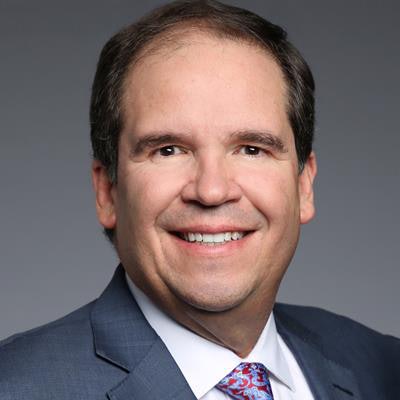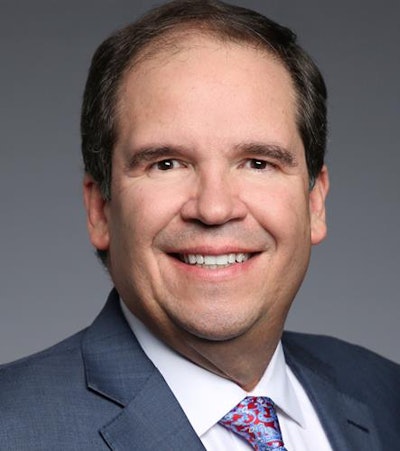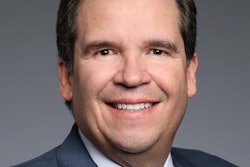
It's been about a month since Dr. Cesar Sabates took office as the 158th president of the ADA, and he has a list of priorities, including showcasing the benefits of ADA membership and improving diversity and inclusivity in the organization.
As the association's first Cuban-American president, he recognizes that the ADA needs to do better when it comes to diversity.
 Dr. Cesar Sabates, 158th president of the ADA.
Dr. Cesar Sabates, 158th president of the ADA."One area we struggle with is that our leadership is not as diverse as our membership, our membership is not as diverse as the profession, and the profession is not as diverse as the population," Sabates said.
Of the approximately 201,000 dentists in the U.S., about 162,000 are members of the ADA. About 40,000 are women and about 25,000 have racially/ethnically diverse backgrounds. Sabates' main goal is to change those numbers for the better within ADA leadership and the organization while emphasizing the value of membership to dentists.
"I won't sugarcoat that the ADA needs to do more to diversify our membership and our leadership. ... We're on our way, but there is more work to do," Sabates said.
Some positive steps are already in the works. Last year, the ADA launched the "Amplifying Voices" series that gives members a forum to discuss topics, including racial inequality, women's empowerment, and other issues.
"We need to model these types of programs and scale them bigger. That's what we're working on now," Sabates said. "I'd also like to hear from our members and nonmembers and what they think we should be doing to be more inclusive."
Promoting the benefits
What Sabates doesn't understand is why young dentists or any dentist would hesitate to join the ADA. The ADA is leading research into oral health trends and innovation in scientific practices, as well as offering hundreds of practical tools. In addition, the organization was integral in helping dentistry return to work safely during the COVID-19 pandemic.
"The benefit of joining the ADA is that you have an association on your side," Sabates said. "[You have] an entire professional organization -- led by amazing dentist leaders, and in partnership with our expert and talented staff -- to support you and to lead dentistry forward."
However, Sabates recognizes that some dentists continue to struggle due to COVID-19-related issues or other problems.
"Well-being is another part of the ADA that people don't know about," he added. "State dental societies have well-being committees, and nationally, we have partnered with organizations who can help us with this. I tell people all the time. You don't have to go through all of this alone."
Furthermore, Sabates is proud of the ADA's legislative efforts.
"No one else is making waves in DC like we are for dentistry," he said. "And if there is something we are not doing -- please tell us! It's definitely a new day, and it's time for us all to join in the work of the ADA."
Medicare and more
Though adding dental benefits to Medicare Part B is no longer on the table, the ADA will continue to engage in conversations with multiple stakeholders, including dentists and legislators, on the next steps in the dental policy conversation at the U.S. level, Sabates explained.
"My hope is that we will work together to provide meaningful coverage to those seniors unable to visit the dentist because they cannot afford it," he added.
Sabates believes dentistry is essential for everyone, but he also recognizes that the oral health needs of seniors are complex. The complexities are why the ADA opposed expansion of dental benefits via Medicare Part B.
"The issue for Congress to address is the total cost," he explained. "Based on a proposal we started four years ago, Congress will not be able to fund Medicare expansion appropriately for it to greatly benefit all seniors. If we want to create a program that works, Congress should use their limited resources wisely."
Speaking of politics, Sabates said the ADA's political action committee (ADPAC) will no longer financially support controversial former dentist Rep. Dr. Paul Gosar (R-AZ).
In July, ADPAC suspended political contributions to Gosar and promised to review criteria to determine the organization's future priorities and guidelines for contributions to lawmakers following months of mounting pressure from some of its members. Gosar has stoked the flames of many conspiracy theories, and, currently, the lawmaker faces possible censure for posting a cartoon video depicting him killing Rep. Alexandria Ocasio-Cortez (D-NY) and brandishing a sword at President Joe Biden.
The PAC "has not contributed to Rep. Gosar in nearly two years, and it will no longer contribute to him in the future," Sabates said. "ADA core values will be considered when decisions are made regarding future political contributions by ADA's PAC."
Recognizing that the ADA's participation in the political process should reflect the ideals and values that represent the profession, the organization "will continue to support policies that align with our values and help us fulfill our vision of achieving optimal health for all," he added.
Rooted in dentistry
Before becoming president, Sabates was the trustee for the 17th District for the ADA Board of Trustees. From 2000 to 2016, he was a delegate in the ADA House of Delegates. Also, he is a member of the Academy of General Dentistry and the Hispanic Dental Association, and he is a fellow of the American College of Dentists, the International College of Dentists, and the Pierre Fauchard Academy.
Sabates, who lives in Coral Gables, FL, where he maintains a private practice, pursued the position of president because he wanted to give back to a profession that gave him and his family so much.
"I want to create for ADA members what I have been so blessed to experience -- a sense of community and support," he said. "The ADA has had my back throughout my career, and I want members to feel the same on all fronts -- whether it's legislative advocacy or finding a solution to a challenge in your practice."




















